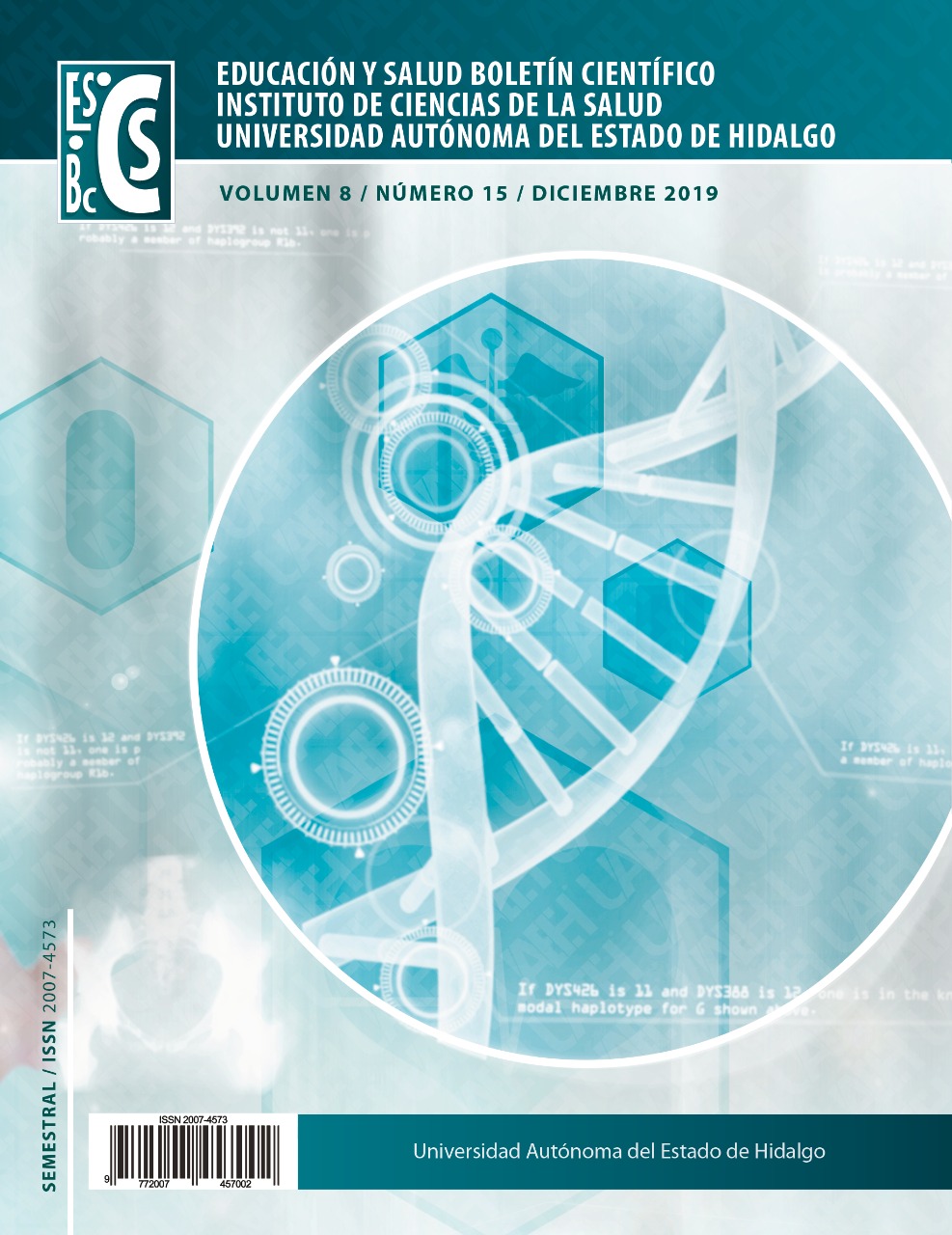Nutrición de Precisión para Dislipidemias en la Infección por el VIH/Sida
DOI:
https://doi.org/10.29057/icsa.v8i15.4714Palabras clave:
VIH/sida, Nutrición de precisión, Dislipidemia, SREBP1, AntirretroviralesResumen
La dislipidemia asociada a VIH/Sida es multifactorial y constituye un factor de riesgo para el desarrollo de complicaciones macrovasculares: infarto de miocardio y enfermedad cerebrovascular, las cuales afectan la calidad de vida. Al inicio de los tratamientos farmacológicos de pacientes con VIH/Sida, las dislipidemias se asociaron con los inhibidores de proteasas (IP), y más tarde, con los inhibidores de la transcriptasa reversa de nucleósidos (ITRNs) y los inhibidores de la transcriptasa reversa no nucleósidos (ITRNNs). La evidencia indica que el uso de estos fármacos antirretrovirales incrementa la expresión del gen sterol regulatory element binding proteins (SREBP), el cual es regulado por el gen SREBP1; incrementándose así la expresión de genes lipogénicos.
La nutrición de precisión es un abordaje que tiene como fin la nutrición individualizada del paciente, donde se consideran el fenotipo, genotipo y las prácticas de actividad física del sujeto a evaluar; el objetivo de este informe de caso clínico es caracterizar y describir las dislipidemias de un paciente con VIH, un abordaje de nutrición de precisión basado en las condiciones particulares del paciente y el funcionamiento de la proteína SRBEP1, la cual regula la expresión de genes involucrados en la lipogénesis.
Descargas
Citas
OMS. Temas de salud: VIH/SIDA 2019. Recuperado de: https://www.who.int/topics/hiv_aids/es/.
Laslett LJ, Alagona P, Clark BA, Drozda JP, Saldivar F, Wilson SR, et al. The worldwide environment of cardiovascular disease: prevalence, diagnosis, therapy, and policy issues: a report from the American College of Cardiology. Journal of the American College of Cardiology. 2012;60(25 Supplement):S1-S49.
Jain RG, Furfine ES, Pedneault L, White AJ, Lenhard JM. Metabolic complications associated with antiretroviral therapy. Antiviral research. 2001;51(3):151-77.
Shamah-Levy T, Cuevas-Nasu L, Rivera-Dommarco J, Hernández-Ávila M. Encuesta Nacional de Nutrición y Salud de Medio Camino 2016 (ENSANUT MC 2016). Informe final de resultados. Recuperado de https://www.insp.mx/ensanut/medio-camino-16 html.
ML. G. Evaluation and management of dyslipidemia in patients with HIV infection. JGIM 2002;17:797-810.
Zangerle R SM, Gallati H, Reibnegger G, Wachter H, Fuchs D. Decreased plasma concentrations of HDL cholesterol in HIV-infected individuals are associated with immune activation. J Acquir Immune Defic Syndr 1994;7:1149-56.
Dubé MP, Stein JH, Aberg JA, Fichtenbaum CJ, Gerber JG, Tashima KT, et al. Guidelines for the evaluation and management of dyslipidemia in human immunodeficiency virus (HIV)-infected adults receiving antiretroviral therapy: recommendations of the HIV Medicine Association of the Infectious Disease Society of America and the Adult AIDS Clinical Trials Group. Clinical Infectious Diseases. 2003;37(5):613-27.
Riddle TM, Kuhel DG, Woollett LA, Fichtenbaum CJ, Hui DY. HIV protease inhibitor induces fatty acid and sterol biosynthesis in liver and adipose tissues due to the accumulation of activated sterol regulatory element-binding proteins in the nucleus. Journal of Biological Chemistry. 2001;276(40):37514-9.
Ferguson LR, De Caterina R, Gorman U, Allayee H, Kohlmeier M, Prasad C, et al. Guide and Position of the International Society of Nutrigenetics/Nutrigenomics on Personalised Nutrition: Part 1 - Fields of Precision Nutrition. Journal of nutrigenetics and nutrigenomics. 2016;9(1):12-27.
Horton JD, Bashmakov Y, Shimomura I, Shimano H. Regulation of sterol regulatory element binding proteins in livers of fasted and refed mice. Proceedings of the National Academy of Sciences. 1998;95(11):5987-92.
Kim JB, Sarraf P, Wright M, Yao KM, Mueller E, Solanes G, et al. Nutritional and insulin regulation of fatty acid synthetase and leptin gene expression through ADD1/SREBP1. The Journal of clinical investigation. 1998;101(1):1-9.
Elmadfa I, Kornsteiner M. Fats and fatty acid requirements for adults. Annals of nutrition & metabolism. 2009;55(1-3):56-75.
Camargo A, Meneses ME, Pérez-Martínez P, Delgado-Lista J, Rangel-Zúñiga OA, Marín C, et al. Dietary fat modifies lipid metabolism in the adipose tissue of metabolic syndrome patients. Genes & nutrition. 2014;9(4):409.
Volpe G, Skinner S, Gerrior-Schofield J, Zhang FF, Tang A, Kuvin J, et al., editors. A Randomized Controlled Trial of Omega-3 Fatty Acids in Human Immunodeficiency Virus (HIV): Long-Term Effects on Lipids and Vascular Function. Open Forum Infectious Diseases; 2016: Oxford University Press.
Jaggers JR, Hand GA. Health Benefits of Exercise for People Living With HIV: A Review of the Literature. American journal of lifestyle medicine. 2016;10(3):184-92.


















